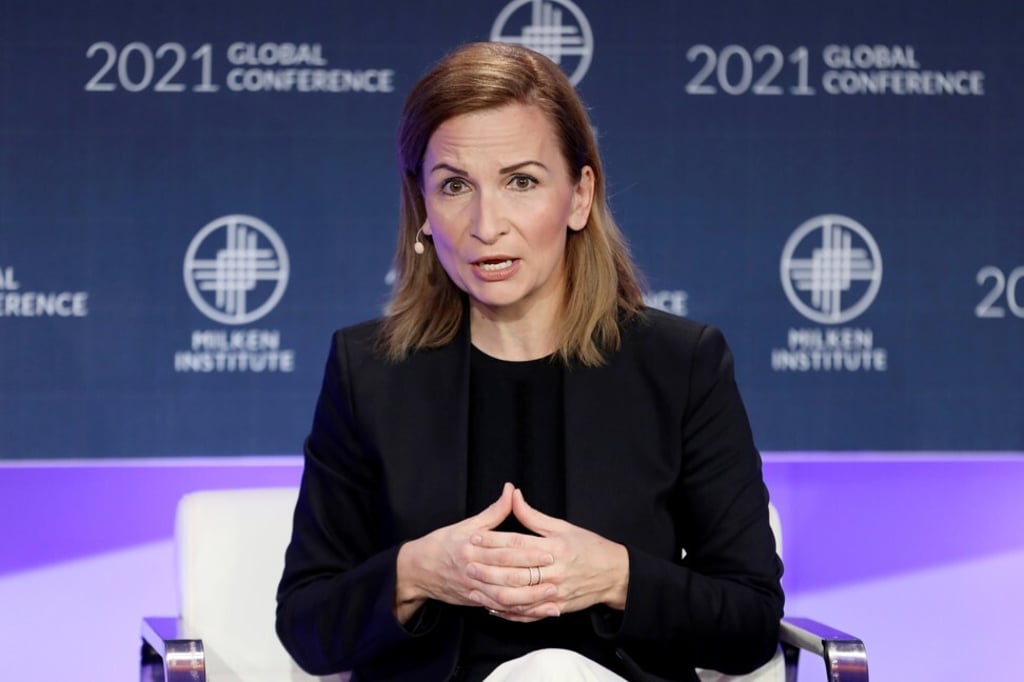Advertisement
US exploring how banks can hold and trade cryptocurrency like traditional assets, FDIC chairman says
- The chairman of the Federal Deposit Insurance Corporation said bank regulators are trying to provide a road map for banks to engage with crypto assets
- Regulators need to mitigate risk while allowing banks to operate in the crypto space, Chairman Jelena McWilliams said
Reading Time:2 minutes
Why you can trust SCMP
1

A top US bank regulator said US officials are looking to provide a clearer path for banks and their clients that are looking to hold cryptocurrencies, in order to keep control over the fast-developing asset.
Jelena McWilliams, who chairs the Federal Deposit Insurance Corporation, told Reuters in an interview on Monday that a team of US bank regulators is trying to provide a road map for banks to engage with crypto assets.
That could include clearer rules over holding cryptocurrency in custody to facilitate client trading, using them as collateral for loans, or even holding them on their balance sheets like more traditional assets.
Advertisement

“I think that we need to allow banks in this space, while appropriately managing and mitigating risk,” she said in an interview on the sidelines of a fintech conference.
Advertisement
“If we don’t bring this activity inside the banks, it is going to develop outside of the banks. … The federal regulators won’t be able to regulate it.”
McWilliams’ comments provide the fullest picture yet of what regulators are exploring as part of a cryptocurrency “sprint” team first announced in May. The goal of the team was to ensure cryptocurrency policy coordination among the three main US bank regulators – FDIC, Federal Reserve and Office of the Comptroller of the Currency.
Advertisement
Select Voice
Select Speed
1.00x